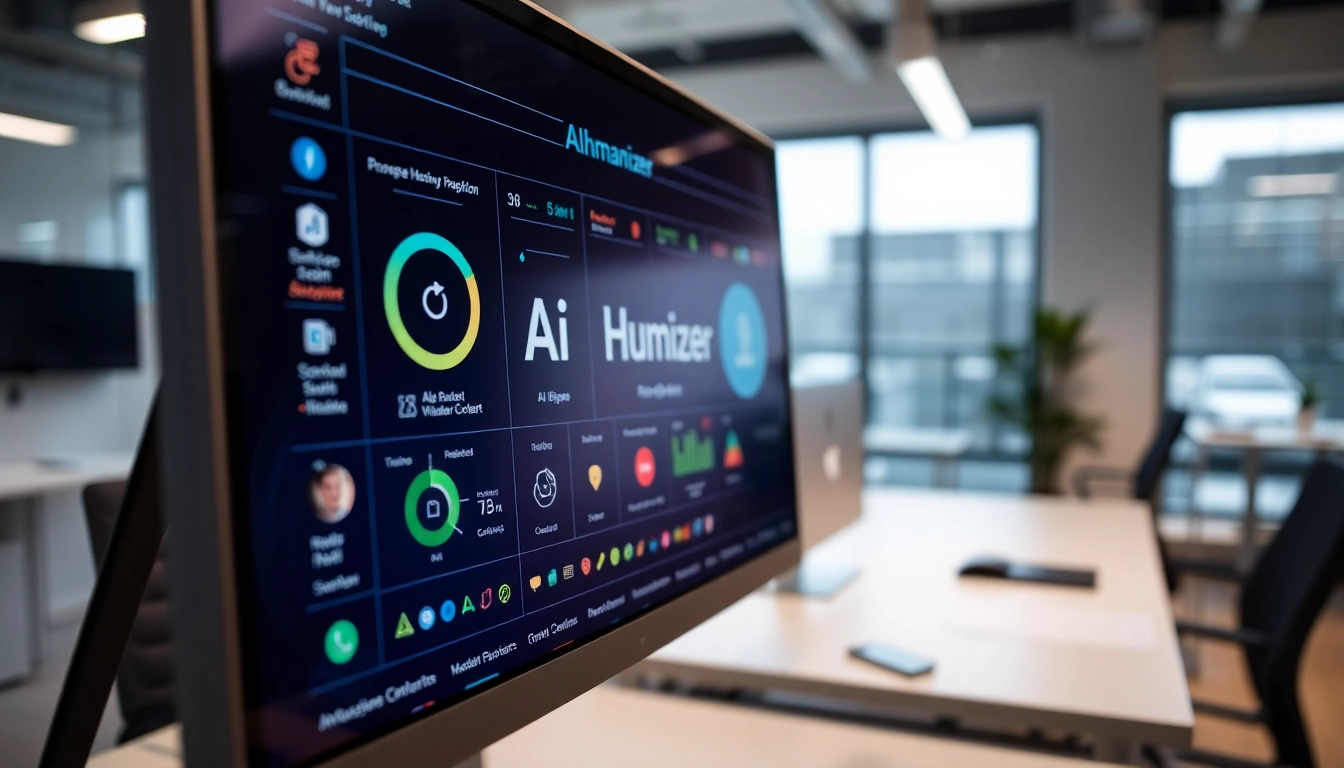Understanding Technology
Definition and Core Concepts
Technology, at its core, can be understood as technology – the application of scientific knowledge to achieve practical aims in human life. As Merriam-Webster defines it, technology refers to “the science of the application of knowledge to practical purposes,” an embodiment of applied science in action.
Every innovation that emerges reflects our innate ability to leverage knowledge for efficiency, productivity, and enhancement of life. From simple tools to complex algorithms, technology encapsulates a vast range of applications across various sectors.
Types of Technology
When discussing the myriad forms of technology, one can categorize them into several primary types:
- Information Technology (IT): Encompasses computing devices, networks, software, and systems used to manage data and communication.
- Industrial Technology: Involves the automated production processes used in manufacturing and engineering.
- Biotechnology: The exploitation of biological processes for industrial and other practical applications, such as in healthcare.
- Nanotechnology: The manipulation of matter on an atomic or molecular scale to create new materials and devices.
- Environmental Technology: The use of science to improve the natural environment and solve environmental problems, such as pollution control or waste management.
Role of Technology in Society
Technology plays a pivotal role in shaping societies, influencing how we communicate, learn, and work. As it integrates deeper into our daily routines, it fosters connectivity and information access. The impact is profound, revolutionizing industries, enhancing educational frameworks, and bridging cultural divides worldwide.
Moreover, its role in fostering economic growth is indispensable. It drives innovations that promote productivity and efficiency, which often leads to job creation and improved living standards. However, while technology brings opportunities, it also necessitates a shift in skills and consciousness towards an increasingly digital world.
The Evolution of Technology
Historical Advancements
The journey of technology is rich and multifaceted. Dating back to the Stone Age, primitive tools were humanity’s first technological innovations, enabling our ancestors to hunt and gather. Fast forward to the Industrial Revolution, which marked a significant leap in mechanization, fundamentally altering production and labor dynamics across the globe.
Each era brought forth new inventions, from the steam engine to the telephone, shaping the ways in which societies functioned. The Digital Revolution brought about computers and the internet, facilitating a knowledge explosion and the current information age.
Modern Innovations
Today’s technological landscape is characterized by rapid advancements in fields such as artificial intelligence (AI), machine learning, and blockchain. Popular devices like smartphones and wearables have significantly changed human interaction and accessibility to information.
Moreover, the integration of AI in everyday life, enhancing personalized services and predictive analytics in sectors like retail and finance, exemplifies the transformative power of modern technology. Companies are increasingly harnessing big data to understand consumer behavior, thus tailoring their products and approaches to enhance customer experience.
Future Trends in Technology
The horizon is bright and challenging for technology. Emerging trends, such as the Internet of Things (IoT), quantum computing, and augmented reality (AR), promise to further revolutionize how we operate. IoT, which interconnects devices allowing them to communicate and share data, aims to optimize everyday chores, from home automation to advanced industrial processes.
Quantum computing stands to exceed the capabilities of current computation by leveraging quantum bits to solve complex problems at a speed unimaginable today. As we explore these frontiers, ethical considerations and societal impacts will become focal points in discussions surrounding technology’s future.
Applications of Technology in Various Industries
Healthcare Technology
The healthcare sector has witnessed transformative changes through technology. Telemedicine, electronic health records, and wearable devices are just a few examples of how technology enables better patient care and management. Technologies such as AI and machine learning are being utilized to diagnose diseases, analyze medical images, and develop treatment plans more effectively and quickly.
Furthermore, advancements in genomic technologies are paving the way for personalized medicine, tailoring healthcare solutions based on individual genetic profiles. In this regard, technology’s role is not just supportive but foundational for future healthcare practices.
Information Technology Systems
Information technology systems serve as the backbone of modern businesses. These systems enhance data collection, streamline operations, and ensure effective communication. IT encompasses everything from hardware and software to networking and database management, contributing to an organization’s operational efficiency.
With the increasing threat of cybersecurity breaches, the importance of robust IT systems is more pronounced than ever. Implementing cloud computing systems allows for scalable resources while maintaining secure data management practices, offering organizations the flexibility needed to adapt to evolving business demands.
Technology in Education
Education is another domain significantly transformed by technology. Online learning platforms, virtual classrooms, and educational apps have redefined how knowledge is imparted and acquired. Technology facilitates access to a wealth of information, fostering a more inclusive education system where learning resources are available to a broader audience.
Moreover, educational institutions are increasingly integrating technology into their curricula to prepare students for a tech-driven workforce. From coding boot camps to the use of AI in personalized learning experiences, technology is reshaping educational landscapes.
Challenges and Ethical Considerations of Technology
Privacy Concerns
As technology becomes interwoven with daily life, privacy emerges as a pressing concern. The vast amounts of data collected by companies raise questions about who has access to this information and how it is used. Consumers increasingly demand transparency and control over their personal data.
Regulations such as the General Data Protection Regulation (GDPR) in Europe illustrate growing awareness and action towards protecting personal data. It’s vital for organizations to prioritize ethical data management practices to build trust with consumers and ensure compliance with evolving regulations.
Impact on Employment
While technology enhances productivity, it also poses a risk to employment in various sectors. Automation has the potential to displace jobs traditionally performed by humans, leading to economic displacement in specific industries. The challenge lies in striking a balance between leveraging technological advantages while providing retraining and reskilling opportunities for affected workers.
Strategies such as lifelong learning initiatives and focusing on skills relevant to emerging industries will be critical in mitigating the impact of automation on the workforce.
Sustainability in Technology
The environmental impact of technology also warrants attention. The question of how to make technology sustainable is more crucial than ever. The production of devices, e-waste, and energy consumption associated with data centers contribute significantly to environmental degradation.
Innovations in green technology aim to create sustainable manufacturing practices, promote energy efficiency, and devise recycling solutions that can transform the industry. Companies adopting sustainable practices not only mitigate their environmental impact but also enhance their corporate image and consumer trust.
The Future of Technology
Emerging Technologies
The pace of technological development is accelerating, with emerging technologies expected to redefine industries. Concepts such as the Metaverse, a collective virtual shared space, promise new possibilities for social interaction and commerce. Additionally, advancements in biotechnology, including CRISPR and gene editing, are set to revolutionize healthcare, agriculture, and beyond.
Staying abreast of these trends is crucial for businesses aiming to remain competitive. Companies must be agile, continuously adapting their strategies and technologies to leverage the benefits of these advancements.
Predictions and Speculations
As we look toward the future, speculations around technological advancements abound. Experts predict that AI will increasingly permeate everyday life, enhancing operational efficiency in both personal and professional domains. The integration of AI with robots presents opportunities for enhancing manufacturing, healthcare, and logistics.
Moreover, advancements in quantum computing may yield breakthroughs in fields such as drug discovery and climate modeling, creating ripple effects across numerous industries.
Preparing for a Technology-Driven Future
Preparing for a future dominated by technology entails fostering a culture of innovation, education, and ethical practices within organizations. Embracing agility, investing in workforce skills, and prioritizing technological advancements aligned with corporate values will enable businesses to thrive in a quick-changing landscape.
Moreover, engaging with stakeholders, including employees, consumers, and communities, to understand their perspectives on technology can enhance company practices and curb potential backlash as technology continues to evolve.













